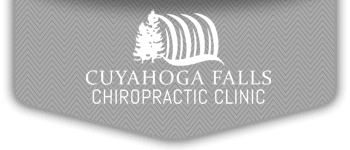Sleeping Better Thanks to Chiropractic Care

Sleeping Better Thanks to Chiropractic Care

Updated on November 11th, 2019 by Dr. Ryan Meehan
If you have trouble falling asleep or staying asleep, you are not alone. The American Sleep Association (ASA) says that 50 to 70 million people in the United States struggle with some sort of sleep disorder. Sleep disorders can prevent you from getting the sleep you need to stay healthy and feel good during the day. Fortunately, chiropractic care can be part of the solution for better sleep.
Learn more about how chiropractic care can help improve sleep quality and successfully treat disorders such as insomnia and sleep apnea.
Rest Is Critical to Good Health
Chronic sleep deprivation leads to a whole host of health problems. This includes daytime fatigue, irritability, difficulty concentrating, delayed reaction time, a weakened immune system, and memory issues. Lack of sleep prevents you from thinking clearly and responding quickly. This cognitive delay can be dangerous while driving a car or on the job, for example. Of course, living life well is difficult if you constantly feel fatigued and unrested.
Sleep deprivation also has an accumulative effect; the negative effects of sleeplessness get worse with every night you rest poorly. Over time, this increases your risk for many serious medical conditions. These include stroke, seizures, heart attack, high blood pressure, a weakened immune system, diabetes, depression, and anxiety. A lack of sleep can also affect your performance at work or school, memory, judgment, and your sex drive.
How Chiropractic Care Can Contribute to Better Sleep
Many don't realize that chiropractors can help with sleep issues. But, it’s true! In fact, according to the National Sleep Foundation, nearly one-third of people who have undergone a chiropractic adjustment say they experience an immediate improvement in sleep.
The benefits of regular chiropractic care for patients with sleep issues include:
- Easing muscle tension that causes restlessness,
- Relaxing the body,
- Relieving pain and discomfort,
- Stimulating circulation and blood flow, and
- Improving central nervous system function.
Following a thorough evaluation, a skilled chiropractor can also provide advice on a better sleeping position, postural exercises, supportive mattress, and ergonomic pillow to help you sleep well.
Chiropractic Care Can Help Treat Sleep Disorders
Patients with some common, yet serious, sleep disorders are also finding relief with the help of ongoing chiropractic care.
Insomnia
This is the most common diagnosed sleep disorder; it refers to difficulty falling asleep, staying asleep, and getting enough sleep to feel rested. Insomnia may be the result of psychiatric and medical conditions, unhealthy sleep habits, using certain substances, and/or certain biological factors. But it’s also important to note that discomfort can contribute to this condition. According to the National Sleep Foundation, chronic neck and back pain are among the many medical conditions that cause insomnia.
Patients seeking help managing the symptoms of insomnia should first be carefully evaluated to identify the source of their sleep disorder. Combined with other therapeutic approaches, chiropractic care can be used to treat insomnia. Recent research suggests there is a link between insomnia and subluxations. Chiropractors can perform targeted adjustments to correct subluxations, or spinal misalignments. High-velocity, low-amplitude manipulation (HVLA) is used to address the areas of joint dysfunction.
This drug-free therapy effectively helps relieve pain and improve sleep quality. Patients immediately feel less pain and notice muscle relaxation. Clinicians also hypothesis that subluxation adjustment helps treat insomnia by balancing the levels of dopamine and serotonin in the brain.
Sleep Apnea
The National Sleep Foundation says that more than 22 million Americans are currently affected by sleep apnea. Obstructive sleep apnea (OSA) is the most commonly experienced type of sleep apnea, occurring when soft tissues inside the mouth and throat relax during sleep and block the upper airway.
This dangerous condition causes momentary apneas - or periods without inhaling - several times each hour during sleep. Pauses in respiration can last 10 to 20 seconds, which is long enough to lower the level of oxygen in the blood. When the brain senses the drop in blood-oxygen levels, it wakes up the rest of the body in order to restart the breathing cycle. Apneas can reoccur more than 30 times per hour throughout the night, making it impossible to get an uninterrupted night’s sleep. If left untreated, OSA can also cause brain damage from the lack of oxygen and contribute to a long list of other serious health conditions.
Subluxations and misalignments, which may be the result of injury, poor posture, or a sedentary lifestyle, are addressed with chiropractic therapy, according to Dr. Jason Crist. The goal is to correct misalignments in the neck and upper body which may restrict respiration or contribute to airway blockage. Chiropractors use soft tissue massage and spinal adjustment to relax muscles, reduce tension, and promote proper breathing. Practitioners can also recommend breathing exercises focused on supporting healthy breathing habits while strengthening the soft tissues that cause snoring and apneas.
Anyone who suspects that they suffer from sleep apnea should talk with their doctor about sleep analysis and diagnosis. For help managing the symptoms of sleep apnea, patients can incorporate chiropractic care into their sleep health treatment plan.
What’s Keeping You Up at Night?
Your Cuyahoga Falls chiropractor provides specialized chiropractic care for sleep issues. We aim to help you fall asleep faster, sleep more deeply, and stay asleep longer.
For more information on how chiropractic care can help you sleep better, make an appointment with Cuyahoga Falls Chiropractic Clinic. Our chiropractors help patients throughout Summit County to get a better night’s sleep tonight and the rest they need to live well. Contact us today to schedule your consultation.

